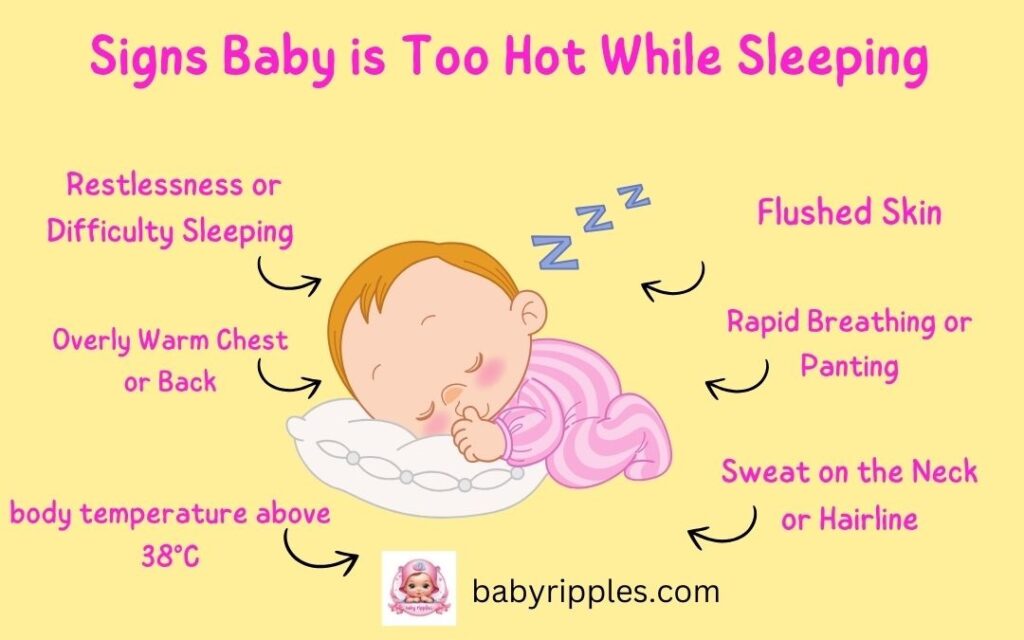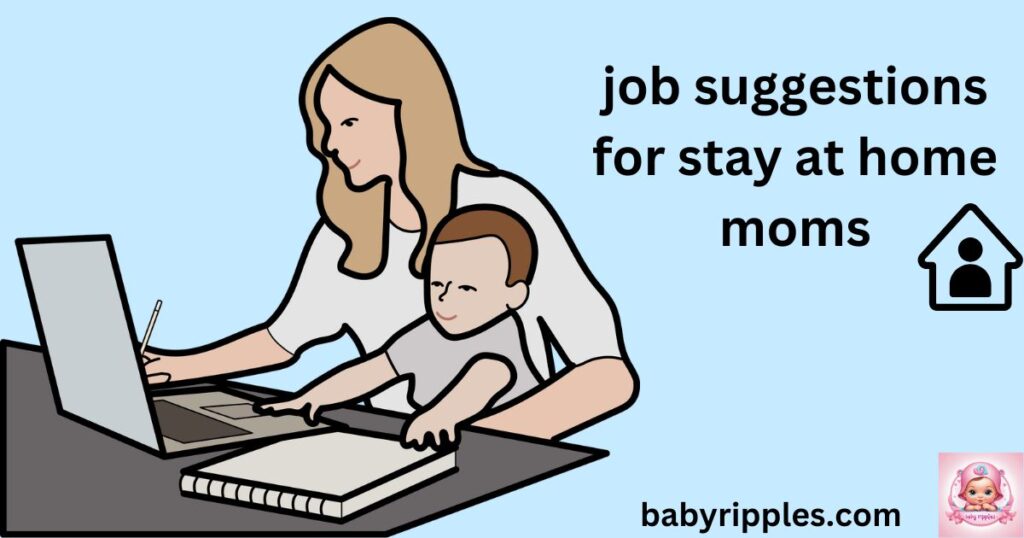Keeping your baby comfortable while they sleep is essential for their health and safety. Signs baby is too hot while sleeping can be subtle but dangerous if unnoticed. Overheating poses serious health risks, so it’s crucial to identify and address the issue promptly. If you’re also wondering about signs my baby is cold at night or whether it’s safe to sleep with a hat, understanding these factors can help you make better sleep decisions for your baby.
- Why Overheating is Dangerous for Babies
- Common Signs Baby is Too Hot While Sleeping
- How to Know if Baby is Too Hot in Swaddle
- How to Tell if a Newborn is Too Hot
- When Can a Newborn Regulate Their Temperature?
- normal temps for newborns
- How to Prevent Your Baby from Overheating
- Best Products to Prevent Baby from Overheating
- What to Do If Your Baby Overheats
- Alternative Safe Sleeping Practices to Prevent Overheating
- Final Thoughts on Preventing Baby Overheating
- Frequently Asked Questions about signs baby is too hot while sleeping
Why Overheating is Dangerous for Babies
Overheating is dangerous for babies because it increases the risk of Sudden Infant Death Syndrome (SIDS). Babies have limited ability to regulate their body temperature, making them vulnerable to heat-related risks. Excess heat can cause discomfort, dehydration, heat rash, and even heatstroke.
Common Signs Baby is Too Hot While Sleeping
Here are the common signs indicating your baby might be overheating:
Sweating:
If your baby is damp with sweat, especially around the neck and back, they may be too hot.
Warm to Touch:
Your baby’s chest, back, or neck feeling hot indicates overheating.
Flushed Skin:
Red or pinkish skin often points to excess heat.
Rapid Breathing:
Fast breathing can be a reaction to heat stress.
Restlessness:
Discomfort and frequent waking can be signs of heat distress.
Lethargy:
If your baby seems unusually sleepy or sluggish, heat exhaustion could be the cause.
Dehydration:
Less frequent wet diapers and dry lips may signal dehydration.
How to Know if Baby is Too Hot in Swaddle
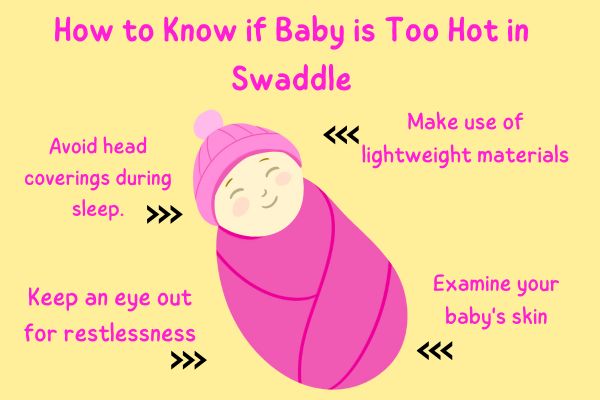
A popular method for making babies feel safe while they sleep is swaddling. Swaddling, however, can occasionally result in overheating if done with heavy materials or an excessive number of layers.
Here’s how to know if baby is too hot in swaddle:
Examine your baby’s skin:
They are probably too warm if it feels hot or sweaty under the swaddle.
Keep an eye out for restlessness:
Overheated babies frequently exhibit discomfort by wriggling or become more agitated.
Make use of lightweight materials:
Swaddles made of cotton or muslin are perfect for keeping your infant warm without causing overheating. Steer clear of bulky textiles like fleece.You can make rapid changes, like loosening the swaddle or moving to a breathable sleep sack, if you know how to tell whether your baby is too hot in a swaddle.
How to Tell if a Newborn is Too Hot
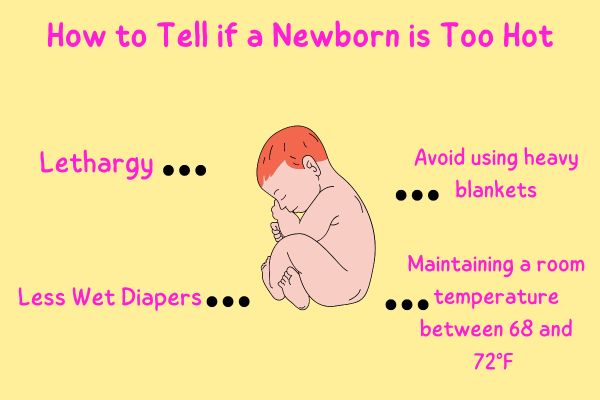
How to tell if a newborn is too hot involves more than just checking the room temperature. Follow these steps:
Touch the Skin:
Feel their neck, back, and chest for warmth or sweat.
Observe Behavior:
Look for restlessness or heavy breathing.
Monitor the Room:
Keep the room between 68-72°F (20-22°C) as part of normal temps for newborns.
Dress Appropriately:
Use light, breathable fabrics like cotton and avoid overdressing.
When Can a Newborn Regulate Their Temperature?
When can a newborn control their body temperature on their own, you ask? A baby’s ability to regulate their body temperature usually takes several months to fully develop. To keep comfortable till then, people depend on their surroundings and their attire.
Around six to twelve months of age, most newborns begin to control their body temperature. Even after this period, it’s crucial to keep an eye on their sleeping conditions to make sure they’re not too hot or chilly.
normal temps for newborns
Newborns normally have temperatures between 97.7°F and 99.5°F (36.5°C and 37.5°C). It’s crucial to remember that a baby’s temperature might change somewhat during the day depending on a number of variables, including the time of day, the environment, and the degree of activity.
Here are a few key points about newborn temperature:
• approach of Measurement: Although oral and underarm procedures are also employed, rectally taking a newborn’s temperature is the most precise approach. Readings for rectal temperatures are often a little higher.
• Fever: A pediatrician should be consulted if the patient has a rectal temperature of 100.4°F (38°C) or above, which is regarded as a fever.
• Cooler Temperatures: A newborn may have hypothermia, a medical emergency, if their temperature falls below 97°F (36.1°C).
• Monitoring: Parents should take their infant’s temperature on a frequent basis, particularly if they observe symptoms of discomfort or illness.
Always consult a healthcare professional if you have concerns about your newborn’s temperature or health.
How to Prevent Your Baby from Overheating
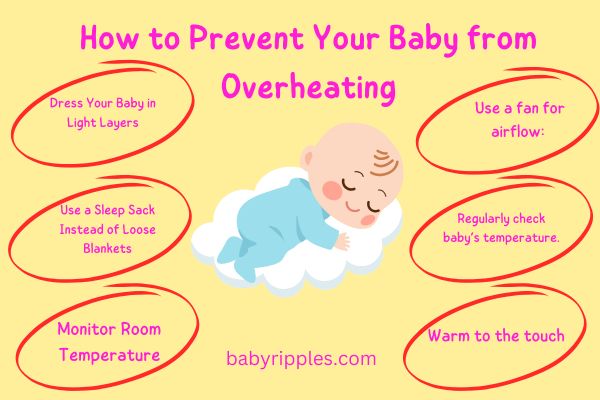
Preventing your baby from overheating during sleep involves simple steps:
1. Choose the Right Sleepwear:
- Opt for light, breathable clothes.
- Avoid hats and socks while indoors.
2. Maintain the Right Room Temperature:
- Ideal sleeping temperature is 68-72°F (20-22°C).
- Use a room thermometer for accuracy.
3. Select a Breathable Crib Setup:
- Avoid heavy blankets and thick mattresses.
- Use a well-ventilated crib and light swaddles.
4. Check Your Baby Regularly:
- Feel their skin for warmth.
- Look for common signs of overheating.
5. Use a Fan or Air Circulation:
Gentle air circulation can help prevent overheating.
Best Products to Prevent Baby from Overheating
Investing in the right products can make a huge difference:
Breathable Swaddles and Sleep Sacks:
Designed for temperature control.
Room Thermometers:
Ensure the room stays at a safe temperature.
Cooling Crib Mattresses:
Promote airflow and prevent heat retention.
These products help you confidently prevent baby from overheating and keep them safe.
What to Do If Your Baby Overheats
If you notice signs baby is too hot while sleeping, act immediately:
Remove Extra Layers:
Strip down to a diaper if needed.
Cool the Room:
Lower the thermostat or use a fan.
Hydrate:
Offer breastmilk or formula to keep your baby hydrated.
Seek Medical Help:
If symptoms persist, consult a pediatrician.
Alternative Safe Sleeping Practices to Prevent Overheating
- Sleeping Position: Always place your infant on their back when they are sleeping.
- Avoid Co-Sleeping: Use a separate crib for better air circulation.
- Breathable Bedding: Use light, breathable bedding only.
Final Thoughts on Preventing Baby Overheating
Ensuring your baby stays cool while sleeping is crucial for their safety and comfort. By recognizing the common signs of overheating and following preventive measures, you can create a secure sleep environment. Investing in high-quality sleep products helps you confidently protect your baby.
Frequently Asked Questions about signs baby is too hot while sleeping
1. What is the normal temperature range for newborns?
Newborns normally have a temperature range of 97.7°F to 99.5°F (36.5°C to 37.5°C). A pediatrician should be consulted if the temperature rises above 100.4°F (38°C), which is regarded as a fever.
2. How can I tell if my baby is too hot while sleeping?
Feeling your baby’s chest or the back of their neck while they sleep will help you spot any indications that they are excessively hot. Check for tiredness, sweaty hair, flushed skin, or fast breathing. Your kid can be overheated if they feel too warm to the touch.
3. When can a newborn regulate their temperature?
Within a few weeks of birth, newborns begin to learn how to control their body temperature. It’s crucial to keep a close eye on them, particularly during the first few months, as they are still susceptible to temperature variations.
4. How to tell if a newborn is too hot in a swaddle?
Feel the newborn’s back or chest to see whether they are overheated in a swaddle. They can be overheated if they have perspiration or flushed skin. Another way to spot overheating is to watch for symptoms like restlessness or fast breathing.
5. What should I do if my baby is too hot at night?
Remove extra layers of clothes, change the room temperature, or relocate your infant to a cooler area if you observe that they are overheated at night. To help them calm down, you can also use a moist washcloth; however, do not use cold water as this could shock them. If you have any concerns about your baby’s health, you should always speak with your pediatrician.

